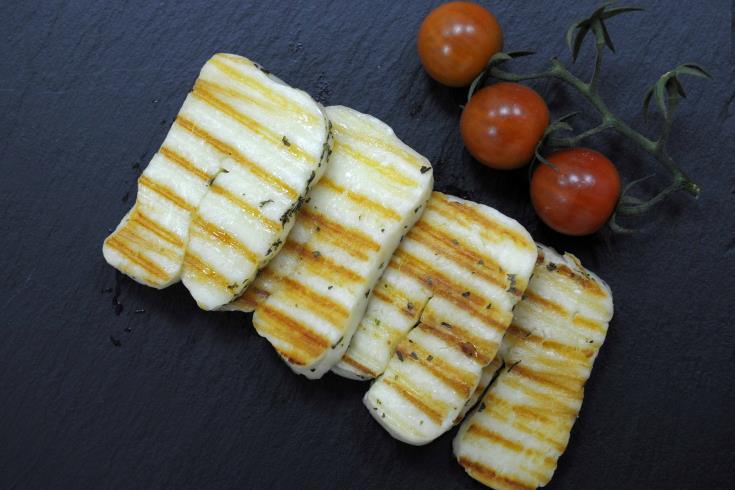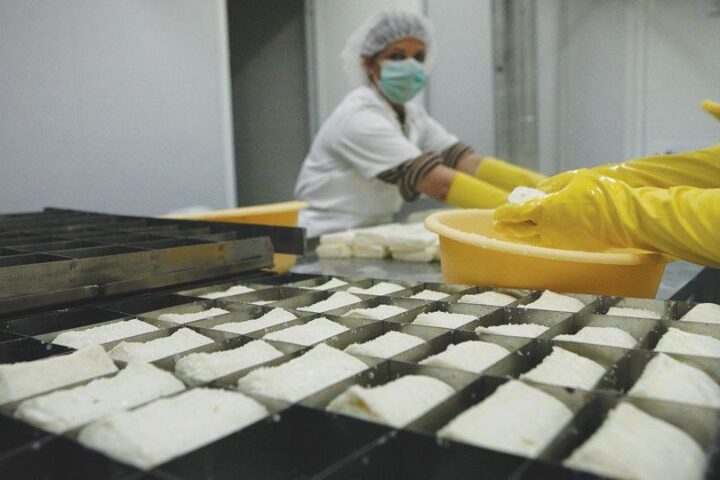The European Commission officially declared the island’s traditional cheese as a protected designation of origin (PDO), meaning halloumi can only be produced in Cyprus under strict product specification.
But implementation of the PDO will have to wait a few more months until 1 October.
Cyprus’ PDO file had lingered in EU corridors for more than seven years, allowing for imitators to stake a claim to the crown.
“The registration allows producers of this iconic Cypriot cheese, famous around the world for its characteristic texture, folded appearance, and suitability for serving grilled or pan-fried, based anywhere on the island of Cyprus to benefit from the PDO status,” the commission said in a statement.
Halloumi is not only protected against imitations, but market share formerly held by imitators will be made available to Cypriot producers.
According to Dublin-based Researchandmarkets.com, the halloumi market is projected to nearly double in six years to reach $737 mln by 2027, registering a compound annual growth rate (CAGR) 10% from 2021 to 2027.
In the last five years, exports of the squeaky cheese show a steady annual increase of 20-22%.
From 2017 – 2019, the volume of exports jumped from 23,431 tonnes in 2017 to 33,672 tonnes in 2019, a 43% rise in just three years.
The white cheese is Cyprus’ biggest food export, generating a whopping €260 mln in 2020 from 40,000 tonnes, yielding €115 mln from 17,000 tonnes sold to the UK.
Brussels hopes “to bring clear economic benefits to the island that will help bolster trust between the two communities”.
For the Turkish Cypriot community to benefit from the decision, the EC also decided to adopt a measure allowing the PDO product to cross the Green Line, provided the cheese and milk from which it is made has met all EU animal and public health standards.
An internationally accredited inspection body will be appointed to conduct PDO inspections throughout Cyprus.
The inspection body will be responsible for ensuring that producers respect the traditional recipe.
Only Halloumi/Hellim that meets all EU health standards can be traded across the Green Line.
To protect animal and public health throughout Cyprus, the commission will help the Turkish Cypriot dairy sector reach compliance as soon as possible with EU animal and public health standards.
The symbolic aspect of halloumi bringing the two communities closer was highlighted by Commissioner for Cohesion, Elisa Ferreira, who called it “a major achievement with political and economic significance for the entire island of Cyprus”.
Food safety
Health Commissioner Stella Kyriakides said the unanimous endorsement by all member states safeguards Cyprus’ unique national product and the EU’s strict food safety laws.
Agriculture Minister Costas Kadis welcomed the decision as a “historic, positive development for Cyprus and an excellent investment for our generation and the generations to come”.
The reasons for delaying the PDO implementation until 1 October were technical and legal, explained Commission spokesperson Miriam Garcia Ferrer on Tuesday.
“The regulation was adopted Monday and will enter into force 20 days after its publication, but its actual implementation is postponed to 1 October.
“The main reason for this is to allow the designated body Bureau Veritas time to complete the legal arrangements with the Cypriot government and present an audit plan.
“This will ensure that producers on both sides of the green line can be certified that they comply with the PDO conditions on the day of implementation and avoid availability gaps of Halloumi / Hellim in the market”.
Cyprus officially filed to the European Commission its application to register the names Halloumi/Hellim as a PDO for cheese made predominantly from sheep and/or goat milk in July 2014.
Cyprus PDO file gained momentum after an agreement was struck between Turkish Cypriots and Greek Cypriots to overcome political obstacles.










